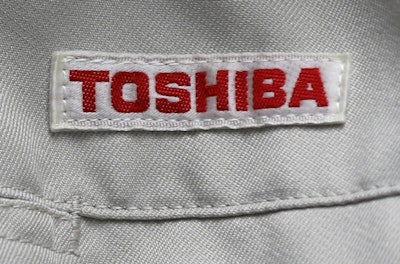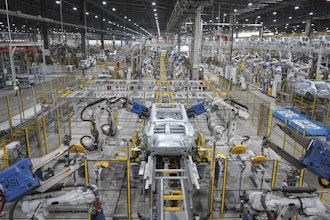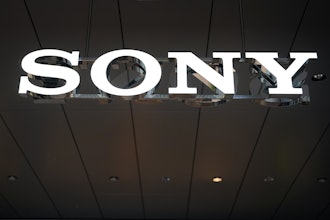
Money-losing Japanese electronics and nuclear company Toshiba Corp. has until Aug. 10 to get auditors to sign off on its earnings statements, or else it faces the risk of getting delisted.
Tokyo-based Toshiba, whose U.S. nuclear unit Westinghouse Electric Co. filed for bankruptcy protection in March, said Friday it received an extension of an earlier June deadline to give its earnings report for the fiscal year that ended in March.
But it's getting bumped down from the first to the second section of the Tokyo Stock Exchange.
Toshiba said earlier this week it chose a consortium led by a Japanese government-backed fund as the preferred bidder to purchase its lucrative computer memory chip business. It sorely needs to cash to survive.
Toshiba's board of directors chose the bid for Toshiba Memory Corp., totaling about 2 trillion yen ($18 billion), from the consortium of Innovation Network Corp. of Japan, Bain Capital Private Equity and the Development Bank of Japan.
But Western Digital of the U.S., which has acquired some SanDisk chip operations, including a joint venture with Toshiba in Japan, reiterated its opposition to such a move. It said Toshiba "has no right" to transfer the joint venture without its consent.
Toshiba has accused Western Digital of interfering with its sales efforts. Such sales can be sensitive because they involve the transfer of technology.
 In this Thursday, June 15, 2017, photo, the logo of Toshiba Corp., Japan's electronics and energy company, is seen on a worker's jacket in Yokosuka, near Tokyo. Tokyo-based Toshiba, whose U.S. nuclear unit Westinghouse Electric Co. filed for bankruptcy protection in March, said Friday it received an extension until Aug. 10 to give its earnings report for the fiscal year that ended in March. (AP Photo/Shuji Kajiyama, File)
In this Thursday, June 15, 2017, photo, the logo of Toshiba Corp., Japan's electronics and energy company, is seen on a worker's jacket in Yokosuka, near Tokyo. Tokyo-based Toshiba, whose U.S. nuclear unit Westinghouse Electric Co. filed for bankruptcy protection in March, said Friday it received an extension until Aug. 10 to give its earnings report for the fiscal year that ended in March. (AP Photo/Shuji Kajiyama, File)Toshiba said talks were continuing on selling the memory chip business, with hopes they would be settled by a shareholders' meeting next week.
Toshiba revised its unaudited earnings report to a 995 billion yen ($9 billion) loss. It had already warned such losses would balloon to nearly 1 trillion yen, even after the Westinghouse bankruptcy filing, although that move was expected to help Toshiba in the long run.
Last month, it had projected a 950 billion yen ($8.6 billion) loss for the fiscal year that ended in March. It racked up a 460 billion yen loss the previous fiscal year.
Reactors that Westinghouse is building in the U.S. are still unfinished, partly because of beefed-up safety regulations following the 2011 Fukushima nuclear disaster.
Toshiba, whose sprawling business included everything from TV sets to high-speed trains, now has as its major responsibility the decommissioning of Fukushima Dai-ichi nuclear plant, where three reactors suffered meltdowns after a massive earthquake and tsunami.
Toshiba is developing various remote-controlled robots that can withstand high radiation to go into the reactors to try to determine the location of the melted nuclear debris.
In 2015, Toshiba acknowledged it had been systematically falsifying its books since 2008, trying to meet overly ambitious targets. An outside investigation found profits had been inflated and expenses hidden across the board.






















